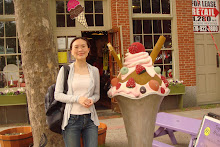I like the short fiction The story of an hour by Kate Chopin so much, because I am moved by the delicate descriptions of the subtle psychological changes that occur in the protagonist Louise. In addition, Chopin continuously compares these changes to the minute details of nature’s landscapes. Although I am not a feminist, I understand the thoughts of Louise and the meaning Chopin wants to express.
The story happens in 1894, when American wives were expected to be completely obedient to their husbands. Before the twentieth century, women were not allowed to vote. Wives also had no power in family matters other than that which their husbands allowed them. However, by the early twentieth century, opportunities for women to work outside the household increased. Women gained the right to vote and wives also increased their power in their marriages. Louise lives during such a transition.
Just as the dawn arises after the long darkness, women long to be free both body and soul after being constrained for centuries. But it is a bold and deviant desire at that time, especially for a decent woman who has a pretty good marriage. No matter how great the social pressure is, the desire for Louise to be free is so strong that it overshadows individual lives and deaths, both her husband’s and her own.
Some people think the end of the story is a tragedy. I don’t think so. I am glad that during the struggle of an hour’s time Louise overcomes herself bravely. She keeps whispering “free” and carries herself like a goddess of Victory, and she gains her freedom by liberating her spirit, although she dies at a price. I recall Petofi Sandor as he wittingly says, “Life is dear, love is dearer, both can be given up for freedom.”
History may not remember this unimportant woman who is broken down by her heart disease. But I will remember the names of both Louise and Kate. I know how brave they are.
(The grammar is corrected by Diane)
Subscribe to:
Post Comments (Atom)

No comments:
Post a Comment